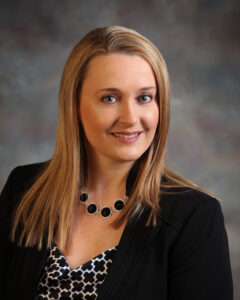‘It’s Important to Act Quickly’ When a Person May Have the Condition
A physician with ThedaCare is shining the spotlight on sepsis and the role early recognition may play in keeping people healthy and safe.
Sepsis is the body’s overwhelming reaction to an existing infection. It can cascade into life-threatening symptoms, including tissue and organ damage that may lead to death, said Dr. Melanie Rohloff, a Family Medicine Physician with ThedaCare Urgent Care-Appleton.

Dr. Melanie Roholff
Sepsis is a medical emergency. A sepsis patient is at higher risk for death than from other more commonly known medical emergencies – including heart attacks or strokes. It is the leading cause of death in hospitals, the No. 1 reason behind hospital readmissions and the top driver of health care costs.
The condition is a health threat that affects 1.7 million people and claims 350,000 adult lives in the U.S. every year.
“When it comes to sepsis, patients may become very ill if appropriate medical treatment is delayed,” Dr. Rohloff said. “It’s important to act quickly when sepsis is suspected because with this condition, time matters.”
Many kinds of infections can trigger sepsis. Some of the most common are pneumonia, urinary tract infections (UTIs) and severe wounds and burns.
Signs and Risk Factors
The onset of sepsis may cause several symptoms. These often include but aren’t limited to:
- Fast heartrate
- Low blood pressure
- Fever or a low body temperature
- Shaking chills
Certain groups of people are especially susceptible to sepsis including children younger than 1 year old; individuals ages 65 and older; pregnant people; those who have a weakened immune system (such as those with cancer or HIV); individuals with medical conditions like diabetes, lung disorders and kidney disease; and people with a recent severe illness or hospitalization.
In addition, people who have medical devices such as catheters, PICC lines and ports must be very careful about infections, Dr. Rohloff said.
At ThedaCare, care teams use protocols called Rapid Recognition and Quick Bedside Analysis to investigate infections that may be evolving into sepsis cases.
There are no strict criteria to diagnose sepsis aside from a combination of physical exam findings, lab tests and patient reports. This has led researchers to begin experimenting with the use of artificial intelligence (AI) to help diagnose sepsis.
Dr. Rohloff highlighted an additional approach that has shown real promise: providers, nurses, support staff and patients working together to consider the possible onset of sepsis. For example, ThedaCare is piloting a program to teach wound care patients to stop and evaluate any changes to their condition on a daily basis.
“That vigilance and that ongoing conversation brings small changes to light,” she said. “If something feels even a little off, that’s the information we need. It’s not a time to wait and see what happens. We need to know about a change in condition right away.”
Prevention is Key
The best way to help prevent sepsis is to prevent infections, Dr. Rohloff said. This means staying up to date on vaccinations, controlling chronic health conditions, carefully cleaning wounds and practicing thorough handwashing.
“Not every infection leads to sepsis,” she said. “If you are in one of the more susceptible groups, we ask that you pay attention to any infections very carefully. If you are ever concerned that you may be developing sepsis, seek medical care as soon as possible. It’s that partnership with patients and providers that can save lives.”
People that suspect they may be experiencing sepsis are encouraged to call 911 or go to the nearest emergency department for assistance.

About ThedaCare
For more than 115 years, ThedaCare® has been improving the health and well-being of the communities it serves in northeast and central Wisconsin. The organization delivers care to more than 650,000 residents in 17 counties, and employs approximately 7,000 providers and team members at 180 points of care, including nine hospitals. As an organization committed to being a leader in Population Health, team members are dedicated to empowering people to live their unique, best lives. ThedaCare is a not-for-profit health system with a level II trauma center, comprehensive cancer treatment, stroke and cardiac programs, as well as primary care. ThedaCare also partners with communities to understand needs, find solutions together, and encourage health awareness and action. ThedaCare is part of Froedtert ThedaCare Health, Wisconsin’s most comprehensive health care system.
